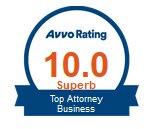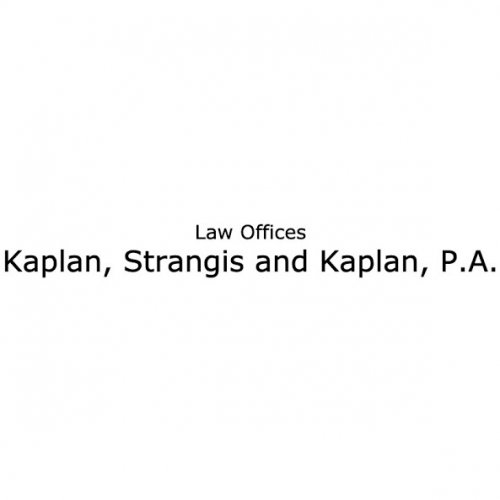Best Private Equity Lawyers in Minnesota
Share your needs with us, get contacted by law firms.
Free. Takes 2 min.
Or refine your search by selecting a city:
List of the best lawyers in Minnesota, United States
About Private Equity Law in Minnesota, United States
Private equity involves investing capital in private companies or taking public companies private, with the goal of improving operations, generating growth, and eventually selling the company or its assets for a return. In Minnesota, private equity transactions play a crucial role in local business development, innovation, and expansion. The legal landscape here is shaped by state and federal regulations that govern how private equity funds are formed, managed, and dissolved. Whether it is venture capital for startups or buyouts of well-established firms, private equity law in Minnesota influences negotiations, structuring, compliance, and exit strategies.
Why You May Need a Lawyer
Private equity transactions are complex and typically involve significant sums of money, various stakeholders, and detailed negotiation of terms. Here are some common scenarios where legal help is vital:
- Forming or structuring a private equity fund or partnership
- Drafting or reviewing investment agreements and subscription documents
- Conducting due diligence on target companies in Minnesota
- Navigating regulatory approvals and disclosures
- Preparing for an exit event, such as a sale, IPO, or recapitalization
- Resolving disputes among investors or between fund managers and portfolio companies
- Complying with state and federal securities laws
- Identifying and managing risks related to liability, taxes, or fiduciary duties
A Minnesota-licensed attorney experienced in private equity can help clients avoid costly mistakes, ensure compliance, and develop effective legal strategies for every stage of the investment cycle.
Local Laws Overview
Minnesota private equity transactions are governed by a mix of state and federal laws. Some of the most relevant legal frameworks include:
- Minnesota Securities Act: State law requires that most securities offerings, even those by private equity funds, are registered or qualify for an exemption. Blue sky laws in Minnesota are designed to protect investors from fraud and ensure transparency.
- Business Entity Laws: Private equity funds are often structured as limited liability companies (LLCs), limited partnerships (LPs), or corporations under Minnesota law, which outlines requirements for formation, governance, and dissolution.
- Contract Law: Most private equity agreements are governed by Minnesota contract law, making it essential to draft clear, enforceable documents.
- Employment and Labor Laws: Private equity deals often involve issues related to employee rights, executive compensation, and non-compete agreements, which are strictly regulated in Minnesota.
- Federal Compliance: Private equity transactions are also subject to federal securities regulations, particularly those enforced by the Securities and Exchange Commission (SEC).
Frequently Asked Questions
What is private equity, and how does it differ from other types of investment?
Private equity refers to investing in companies that are not publicly traded, often through direct purchase or buyouts. Unlike public market investments (stocks or bonds), private equity investments are typically illiquid, require longer holding periods, and involve active management or oversight of portfolio companies.
Is it necessary to register a private equity fund in Minnesota?
Most private equity funds must either register or qualify for an exemption under the Minnesota Securities Act. Compliance with both state and federal securities laws is essential, and legal counsel can help determine the appropriate registration or exemption path.
Do investors in a private equity fund have liability exposure?
Depending on the structure, most private equity funds limit investor liability. For example, limited partners usually are only liable up to their investment amount, but general partners may have broader obligations. Proper structuring is key to protecting investors.
What legal documents are needed to form a private equity fund?
Typical documents include a private placement memorandum, partnership or operating agreement, subscription agreements, and investor questionnaires. Additional documentation may be necessary based on the fund’s activities and investor base.
How long does a typical private equity investment last?
Private equity investments in Minnesota often have a holding period of 4 to 7 years, although the timeline can vary depending on the investment strategy and market circumstances.
Can out-of-state investors participate in Minnesota-based private equity funds?
Yes, out-of-state and even international investors can participate, provided that the fund complies with all relevant securities and tax laws. There may be additional disclosure, registration, or tax reporting requirements.
What regulations apply when buying a Minnesota business through a private equity transaction?
Transactions are governed by Minnesota business law, federal securities law, and may require regulatory approval depending on the industry. Due diligence, proper documentation, and antitrust considerations are all highly relevant.
Are there unique risks to private equity investing in Minnesota?
As with all private equity, risks include illiquidity, potential for loss, regulatory changes, and operational issues within target businesses. Minnesota’s specific legal and regulatory environment, as well as local market considerations, may also impact risk.
How is due diligence conducted for Minnesota private equity deals?
Due diligence involves reviewing financial records, contracts, intellectual property, employment matters, compliance history, and more. Local legal counsel plays a critical role in ensuring thorough review and risk assessment.
What happens if there is a dispute among private equity partners or with portfolio companies?
Disputes are generally resolved according to the terms in the fund’s governing documents, which may call for mediation, arbitration, or litigation in Minnesota courts. A lawyer can help manage these disputes and protect client interests.
Additional Resources
If you are seeking more information or support in private equity law in Minnesota, consider the following resources:
- Minnesota Department of Commerce - Securities Division: Regulates securities offerings and provides investor education.
- U.S. Securities and Exchange Commission (SEC): Oversees federal securities laws and offers extensive guides on private placements and fund registration.
- Minnesota State Bar Association: Can help you find qualified attorneys and provides resources on business and securities law.
- Association for Corporate Growth - Minnesota Chapter: Offers networking and education for professionals involved in private equity and mergers and acquisitions.
- Small Business Administration Minnesota District Office: Provides resources for small business financing and investment strategies, which often intersect with private equity.
Next Steps
If you are considering participating in a private equity transaction, starting a fund, or investing in a Minnesota-based company, it is essential to seek experienced legal counsel. Here are steps you can take:
- Identify your specific goals and potential investments or transactions.
- Gather relevant documents, background information, and questions for your attorney.
- Research and consult with a Minnesota-licensed attorney who specializes in private equity law.
- Work closely with your lawyer to address compliance, risk management, and negotiation strategies.
- Maintain ongoing communication with your attorney throughout the lifecycle of your investment or transaction.
Experienced legal guidance can help ensure that your rights and interests are protected, reduce risks, and pave the way for successful private equity ventures in Minnesota.
Lawzana helps you find the best lawyers and law firms in Minnesota through a curated and pre-screened list of qualified legal professionals. Our platform offers rankings and detailed profiles of attorneys and law firms, allowing you to compare based on practice areas, including Private Equity, experience, and client feedback.
Each profile includes a description of the firm's areas of practice, client reviews, team members and partners, year of establishment, spoken languages, office locations, contact information, social media presence, and any published articles or resources. Most firms on our platform speak English and are experienced in both local and international legal matters.
Get a quote from top-rated law firms in Minnesota, United States — quickly, securely, and without unnecessary hassle.
Disclaimer:
The information provided on this page is for general informational purposes only and does not constitute legal advice. While we strive to ensure the accuracy and relevance of the content, legal information may change over time, and interpretations of the law can vary. You should always consult with a qualified legal professional for advice specific to your situation.
We disclaim all liability for actions taken or not taken based on the content of this page. If you believe any information is incorrect or outdated, please contact us, and we will review and update it where appropriate.
Browse private equity law firms by city in Minnesota
Refine your search by selecting a city.












